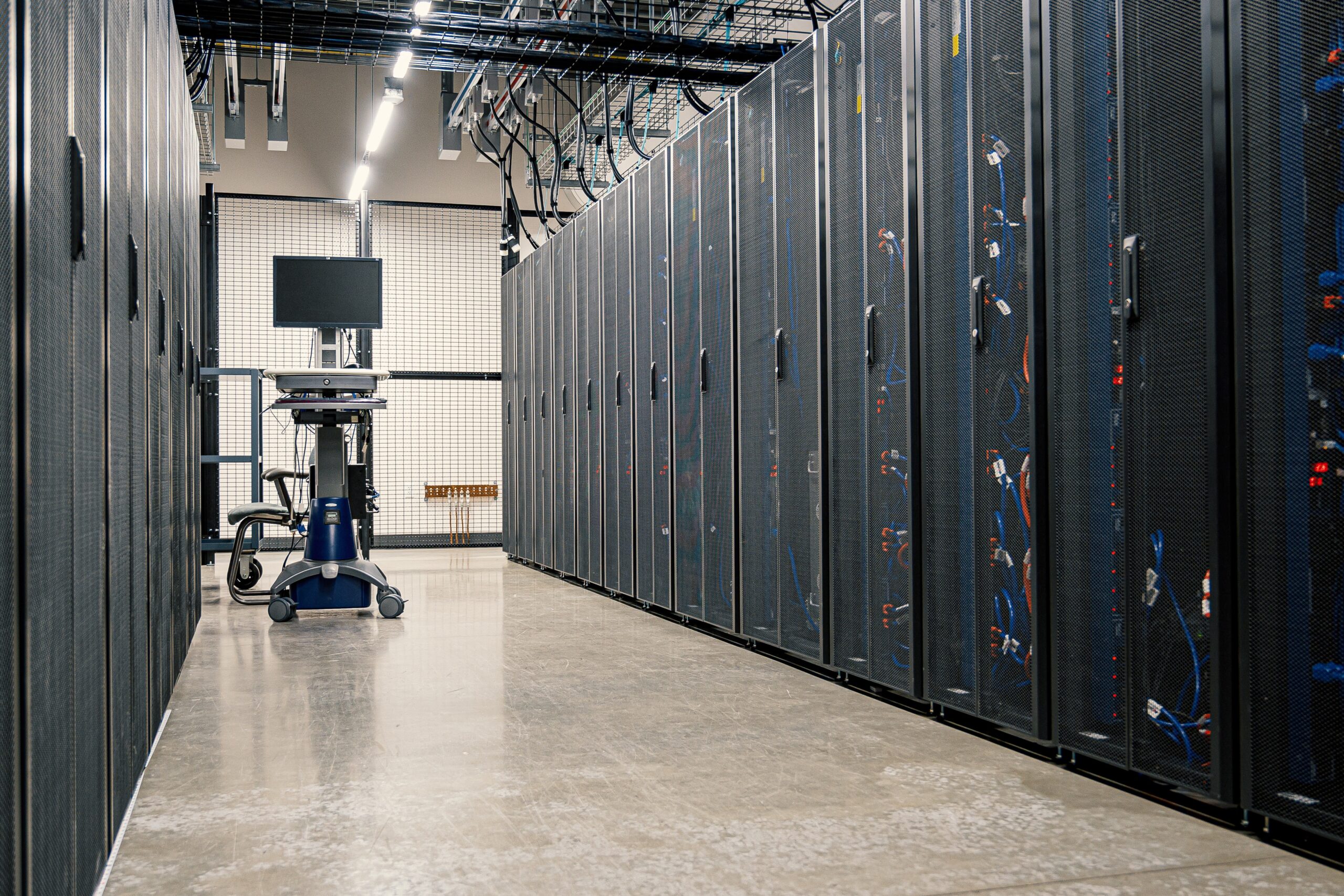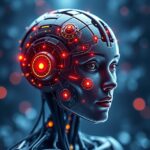Do you ever wake up and wish there were a way to make some things easier in your life?
Unfortunately, we’ve all found out there is no “easy button” for life. Nonetheless, whether it’s related to your health, work, school, family, relationships, productivity, shopping, food systems, or something else- a majority of people assumedly have something they would like to improve or make easier. Now, the question we all face in this quest for improvement is often the same one. How can things become easier?
With the advent of AI, there are several ways which some of your life’s most important tasks may be improved upon and made easier. Especially with proper utilization of the tools around you, there are already some solutions which you can access. Just imagine what the future may hold.
The rapid advancements in artificial intelligence (AI) are not just transforming industries, but they are also reshaping how we live, work, and interact with the world around us. By 2025, AI will play an even more prominent role in enhancing efficiency, improving decision-making, and automating mundane tasks. In this article, we explore six key ways AI will make life easier in the next few years.
Now, for more information about 6 ways AI might help the world, keep reading to learn more.
6 Ways AI Will Make Life Easier in 2025
1. Personalized Healthcare Management
Even according to articles posted by Harvard University, AI will disrupt medicine in many ways, including possibly starting to analyze X-rays to detect abnormalities, among many other tasks. Even now, applications like ChatGPT could also theoretically be used to write a letter to a patient or healthcare provider to explain the medical necessity of a specific treatment.
Some sources believe AI presents many advantages and disadvantages, however one of the main advantages AI may deliver is the ability to improve medical care, disease diagnosis, and treatments. By delivering greater accuracy and more in-depth analysis, AI tools that may start being utilized heavily in healthcare could help doctors to diagnose diseases with more certainty than ever before, and AI also may enable doctors to create more personalized treatment plans for ill patients. Additionally, AI also may be able to help with drug development and testing.
AI has already begun to revolutionize healthcare, but by 2025, it will enable highly personalized treatment plans that are tailored to the specific genetic makeup, lifestyle, and medical history of individuals. AI-powered tools will analyze vast datasets from electronic health records, wearables, and even genetic tests to create bespoke recommendations for preventive care, nutrition, and exercise.
In the future, AI will also be instrumental in diagnosing diseases more accurately and at earlier stages. For instance, AI-based algorithms are already demonstrating the ability to detect cancers, heart disease, and neurological conditions earlier than human doctors can. By reducing the time to diagnosis, we can increase the chances of effective treatment and even save lives.
2. Smarter Home Automation
Remember the old movies about “smart homes,” that usually depict a system going haywire? Well, today’s smart home technology is in many ways more advanced than even the most imaginative Hollywood screenwriters could have ever imagined.
After all, home automation is already becoming a standard feature in many households, but in 2025, AI will enable even smarter homes that learn from your habits and anticipate your needs. Smart thermostats, for example, will adjust your home’s temperature based on your schedule and preferences, saving energy and money while maximizing comfort. Remember when this sort of technology was reserved for Bill Gates’ Xanadu and few other locations? Well… those days are long gone.
Also, it’s likely to assume that AI-powered voice assistants like Amazon Alexa, Apple’s Siri, and Google Assistant will evolve to better understand context and offer more proactive suggestions. For example, instead of just responding to commands, they may predict when you’ll need something based on past behaviors—whether it’s adjusting the lighting, ordering groceries, or even starting your car on a cold morning. The future is really limitless when you consider the possibilities of AI.
3. Improved Transportation and Traffic Management
Given the necessity for safer traffic systems, working on ways to improve transportation and traffic management at scale is a very worthy cause. To help create positive changes, it’s safe to assume AI will be deployed with hopes of greatly enhancing the efficiency and safety of transportation systems in 2025. Autonomous vehicles (AVs), which are already being tested, will become more reliable and widespread over the next decade… but only if the technology can be proven safe and reliable. Proponents of these self-driving cars claim they will reduce accidents caused by human error, improve traffic flow, and lower transportation costs by eliminating the need for human drivers in taxis, trucks, and delivery services… but it remains to be seen if this is realistic.
Furthermore, some believe AI will optimize traffic management in cities by analyzing data from sensors, cameras, and connected vehicles to predict traffic patterns and adjust signals accordingly. This will reduce congestion, lower carbon emissions, and ensure faster, safer commutes, amongst a host of other potential benefits.
Learn about AI in transportation:
Gen AI in transportation | Deloitte Insights
4. More Efficient Customer Service
Ask anyone who has worked in customer service, and they will tell you that it is a very tough industry. After all, it’s tough to be “on” at all times for even the rudest of customers.
To help improve customer service initiatives, AI-powered chatbots and virtual assistants are already being built with the hopes of transforming the customer service industry, but by 2025, they will provide even more sophisticated, human-like interactions, is what some experts predict. With the help of natural language processing (NLP) and machine learning, AI chatbots will handle a wider range of customer queries, from technical support to complex problem resolution.
If deployed for the ideal situations, AI will not only improve response times but also will be able to provide 24/7 customer support across multiple languages and channels. As AI becomes more adept at understanding nuances in language, many think it will lead to better, more accurate responses— possibly freeing human agents to focus on higher-level tasks that require more emotional intelligence and problem-solving skills.
Find out more about AI in customer service:
The Future of AI in Customer Service | IBM
5. Enhanced Work Productivity through AI Assistants
Imagine being able to increase your productivity and efficiency with a few keystrokes? That is the hope for AI- to provide enhanced capabilities for humans; not to replace human workers entirely.
AI-powered assistants are already helping individuals manage tasks and schedules, but in 2025, these digital helpers may be even more integrated into our daily workflow. AI will try to assist with time management, automating mundane administrative tasks like email sorting, scheduling meetings, and managing documents, allowing people to focus on more important work and to possibly free up some all-important time for other tasks you’d prefer to focus on.
In the workplace, AI will augment human creativity and decision-making. For instance, AI systems will analyze market trends and provide insights that help businesses make data-driven decisions more efficiently. Whether you’re an entrepreneur or an employee, AI will become an indispensable tool for streamlining operations and boosting productivity.
6. Smarter Education and Learning Systems
By 2025, AI will drastically change the landscape of education. Personalized learning will be a reality for students of all ages, as AI tutors adapt to each learner’s pace and style, providing individualized instruction and real-time feedback. This is particularly beneficial for learners with different abilities or those struggling in traditional classroom settings.
AI will also support educators by automating grading, tracking student progress, and providing insights on where students may need additional support. AI-powered learning platforms will use data to recommend courses, study materials, and exercises tailored to the individual’s learning goals, making education more accessible and efficient.
Many believe, as AI technology continues to evolve, it will undoubtedly make our lives easier by automating tasks, enhancing decision-making, and providing more personalized services, amongst many other potential positive impacts.
In 2025, we can expect AI to become a more central part of how we manage our health, homes, jobs, and education, and much more.
While there are still numerous challenges to overcome, the benefits AI potentially brings will have the chance to significantly improve our daily experiences, creating a more efficient and connected world.
Embracing these advancements in artificial intelligence and related technologies and adapting to the changing landscape will be key to making the most of what AI has to offer in the near future. So, get ready—AI is not just a trend; many believe it’s the future of convenience and productivity.




Interesting 🧐